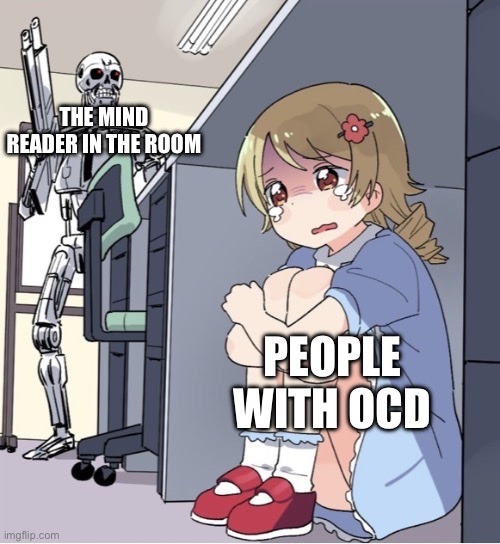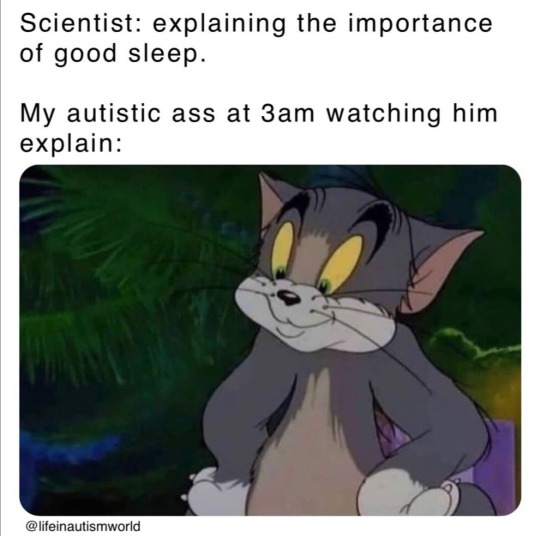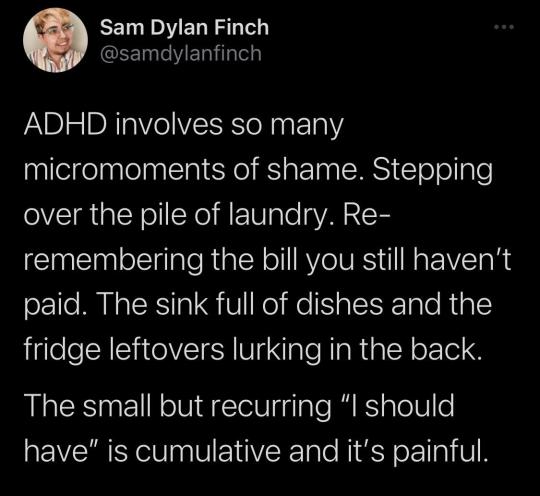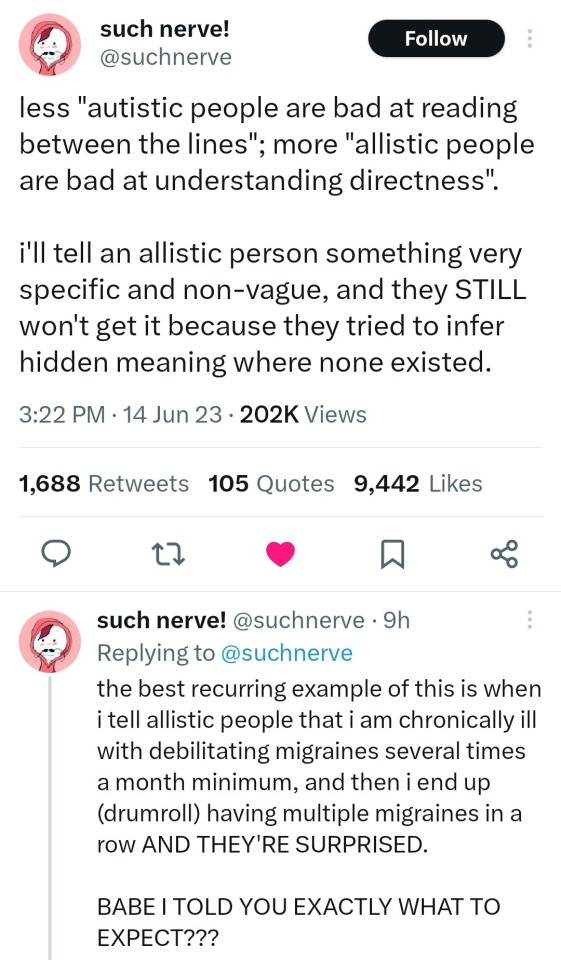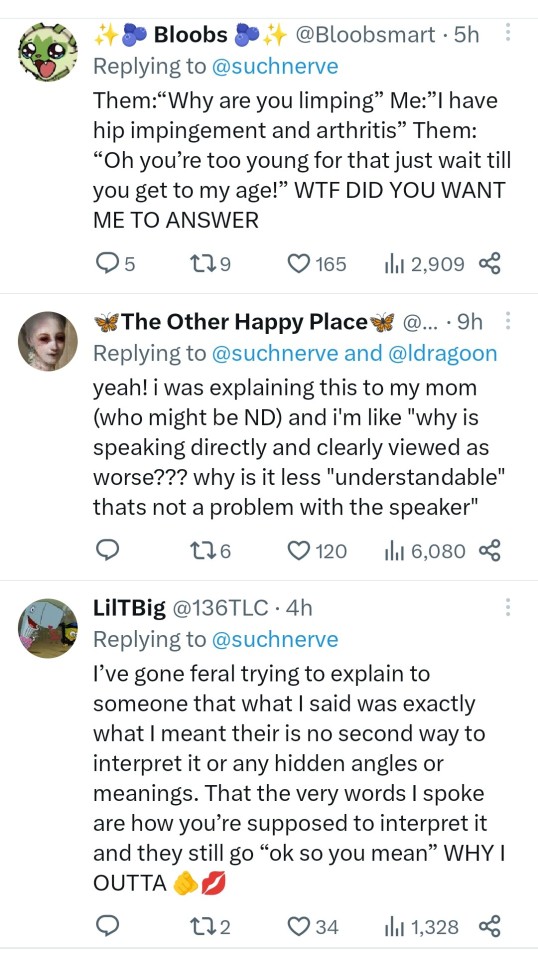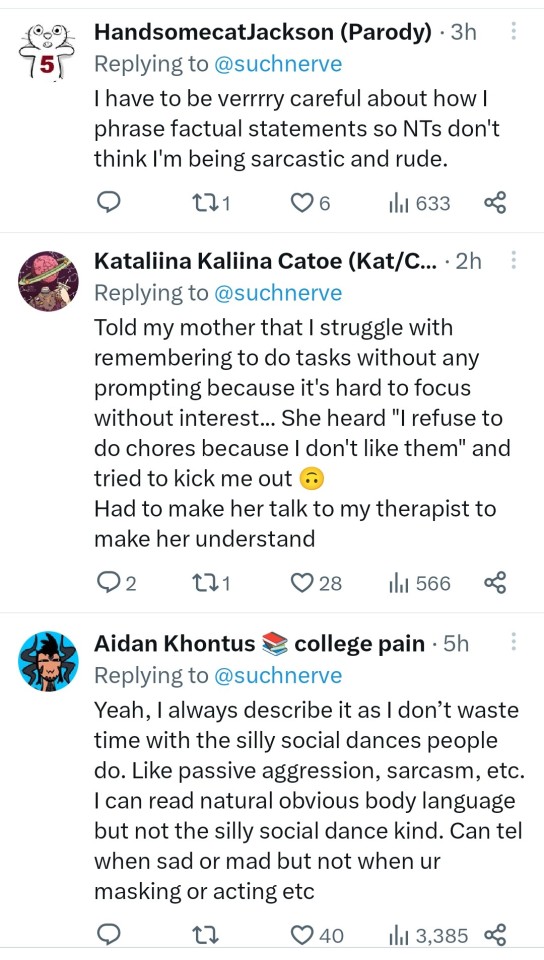Text
Autism is feeling mature compared to your peers as a child and then as an adult feeling extremely immature and childish compared to your peers
3K notes
·
View notes
Text
i’ve said it before and i’ll say it again, being autistic is like playing a board game without knowing any of the rules.
5K notes
·
View notes
Text
Autism From the Inside vs the Outside

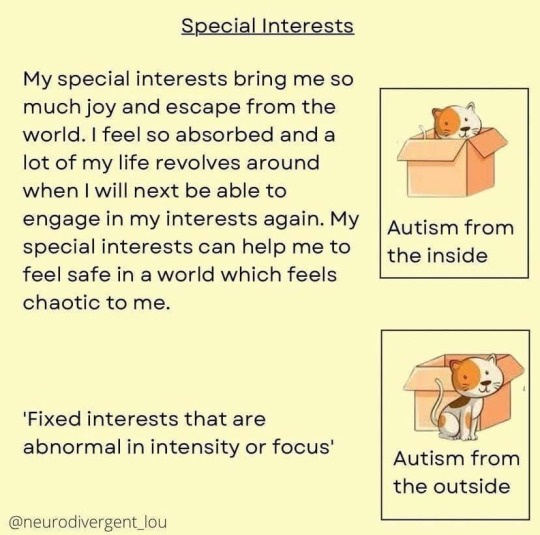
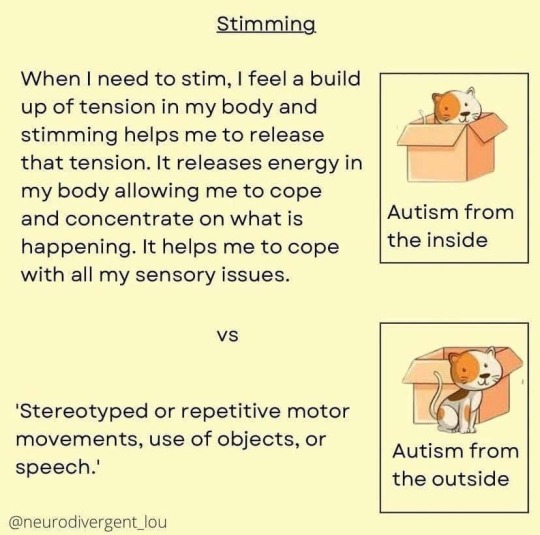
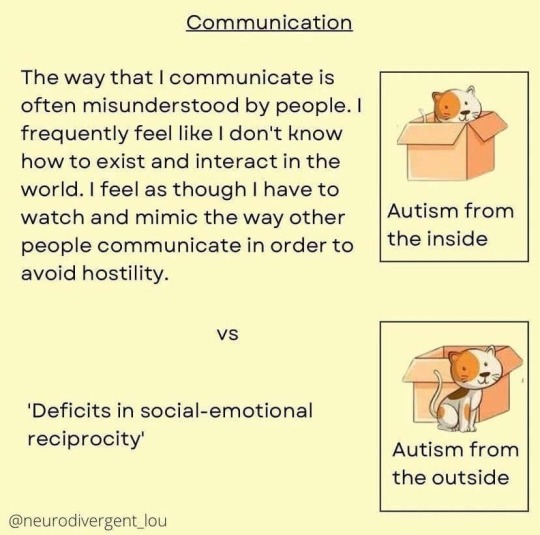


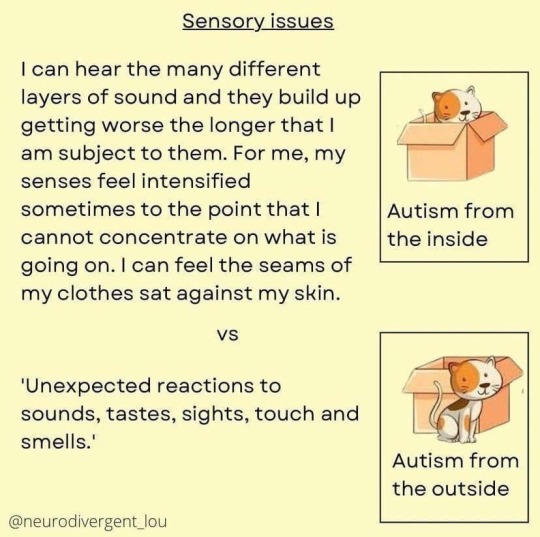
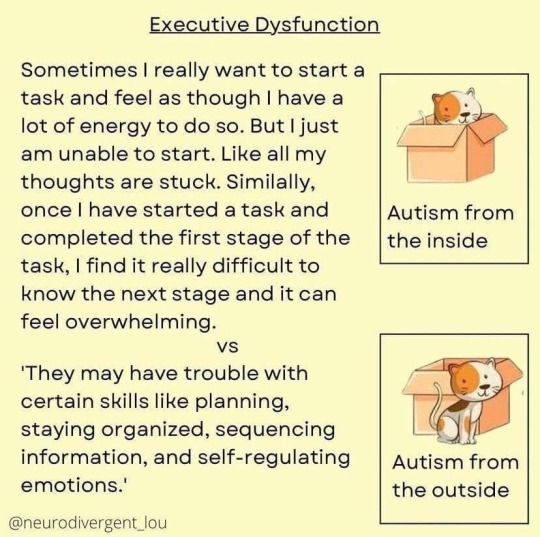
Mrs Speechie P
526 notes
·
View notes
Text
the pipeline of :
finding out you’re autistic —> becoming hyper aware of your autistic traits —> having imposter syndrome because you think the hyper awareness is actually just you faking it
6K notes
·
View notes
Text
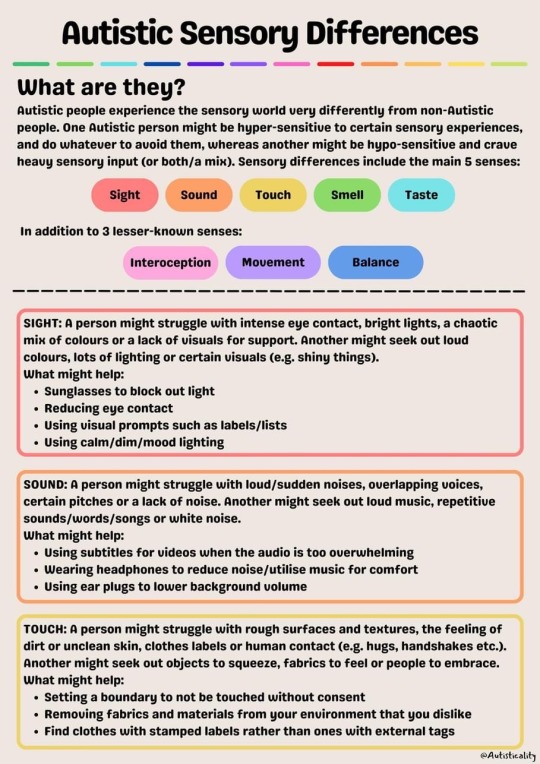
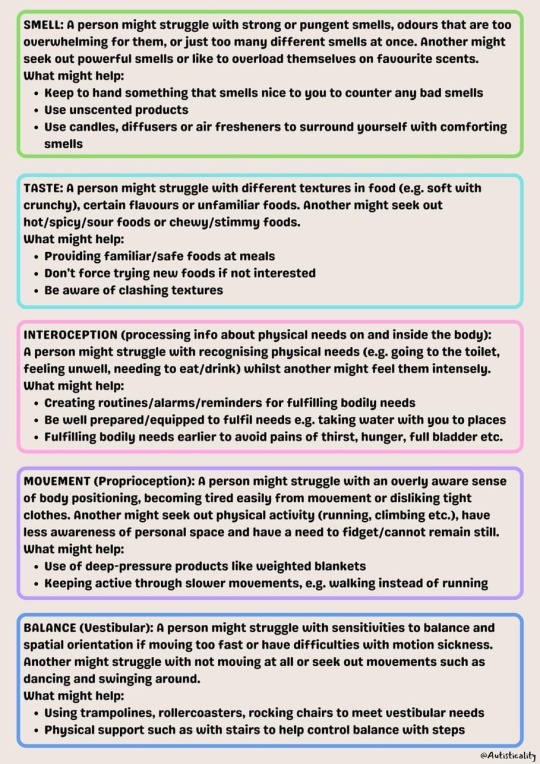
Autistic Sensory Differences
What are they?
Autistic people experience the sensory world very differently from non-Autistic people. One Autistic person might be hyper-sensitive to certain sensory experiences, and do whatever to avoid them, whereas another might be hypo-sensitive and crave heavy sensory input (or both/a mix). Sensory differences include the main 5 senses:
Sight
Sound
Touch
Smell
Taste
addition to 3 lesser-known senses:
Interception
Movement
Balance
SIGHT: A person might struggle with intense eye contact, bright lights, a chaotic mix of colours or a lack of visuals for support. Another might seek out loud colours, lots of lighting or certain visuals (e.g. shiny things).
What might help:
Sunglasses to block out light
Reducing eye contact
Using visual prompts such as labels/lists
Using calm/dim/ mood lighting
SOUND: A person might struggle with loud/sudden noises, overlapping voices, certain pitches or a lack of noise. Another might seek out loud music, repetitive sounds/words/songs or white noise.
What might help:
Using subtitles for videos when the audio is too overwhelming
Wearing headphones to reduce noise/utilise music for comfort
Using ear plugs to lower background volume
TOUCH: A person might struggle with rough surfaces and textures, the feeling of dirt or unclean skin, clothes labels or human contact (e.g. hugs, handshakes etc.).
Another might seek out objects to squeeze, fabrics to feel or people to embrace.
What might help:
Setting a boundary to not be touched without consent
Removing fabrics and materials from your environment that you dislike
Find clothes with stamped labels rather than ones with external tags
SMELL: A person might struggle with strong or pungent smells, odours that are too overwhelming for them, or just too many different smells at once. Another might seek out powerful smells or like to overload themselves on favourite scents.
What might help:
Keep to hand something that smells nice to you to counter any bad smells
Use unscented products
Use candles, diffusers or air fresheners to surround yourself with comforting smells
TASTE: A person might struggle with different textures in food (e.g. soft with crunchy), certain flavours or unfamiliar foods. Another might seek out hot/spicy/sour foods or chewy/stimmy foods.
What might help:
Providing familiar/safe foods at meals
Don't force trying new foods if not interested
Be aware of clashing textures
INTERCEPTION (processing info about physical needs on and inside the body):
A person might struggle with recognising physical needs (e.g. going to the toilet, feeling unwell, needing to eat/drink) whilst another might feel them intensely.
What might help:
Creating routines/alarms/reminders for fulfilling bodily needs
Be well prepared/equipped to fulfil needs e.g. taking water with you to places
Fulfilling bodily needs earlier to avoid pains of thirst, hunger, full bladder etc.
MOUEMENT (Proprioception): A person might struggle with an overly aware sense of body positioning, becoming tired easily from movement or disliking tight clothes. Another might seek out physical activity (running, climbing etc.), have less awareness of personal space and have a need to fidget/cannot remain still.
What might help:
Use of deep-pressure products like weighted blankets
Keeping active through slower movements, e.g. walking instead of running
BALANCE (Vestibular): A person might struggle with sensitivities to balance and spatial orientation if moving too fast or have difficulties with motion sickness.
Another might struggle with not moving at all or seek out movements such as dancing and swinging around.
What might help:
Using trampolines, rollercoasters, rocking chairs to meet vestibular needs
Physical support such as with stairs to help control balance with steps
Autisticality
Autism
Sensory Processing
450 notes
·
View notes
Text
Wild things I have learnt in therapy:
When a child cries, parents are supposed to comfort them, not punish them
Parents are, in fact, supposed to want to spend time with their children
Children too have a right to privacy, meaning parents are not allowed to read their diaries etc and then punish them for the thoughts they found about
Children are allowed to be upset and cry
Children don't have to earn the love and attention from their parents by performing various things
Children are not supposed to be scared of going home and/or their parents
Children are not supposed to be physically abused and even a little bit of hitting is actually physical abuse
Parents are not supposed to expect that children are mentally as mature as other adults
Children are not supposed to be told that they're an accident, a burden, or something the parents regret
Children are not supposed to be scared and ashamed of themselves or feel like failures because of their parents
34K notes
·
View notes
Text
Autism & ARFID

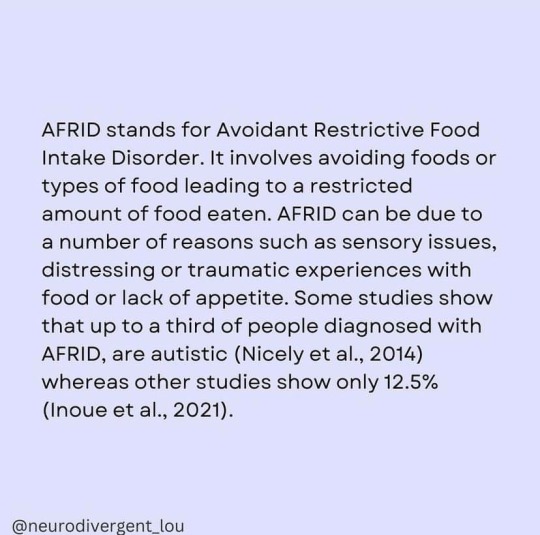

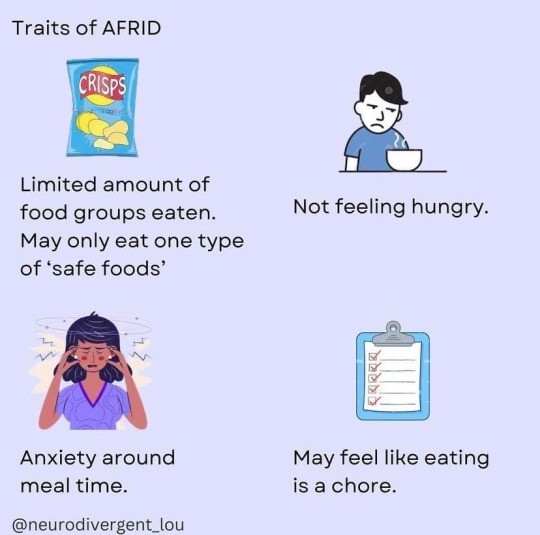


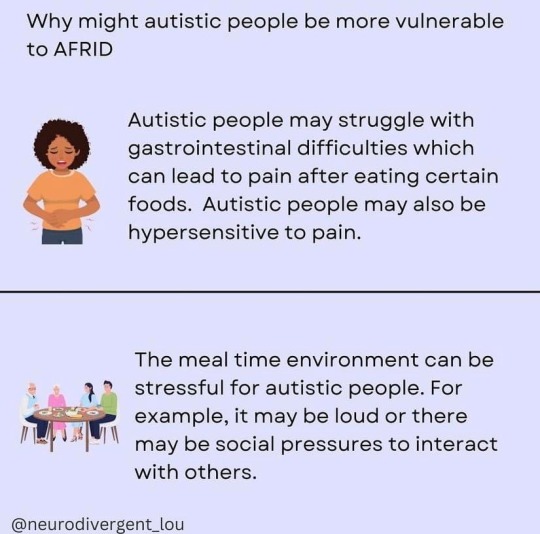


The Contented Child Wellbeing Consultancy
Autism
ARFID
625 notes
·
View notes


